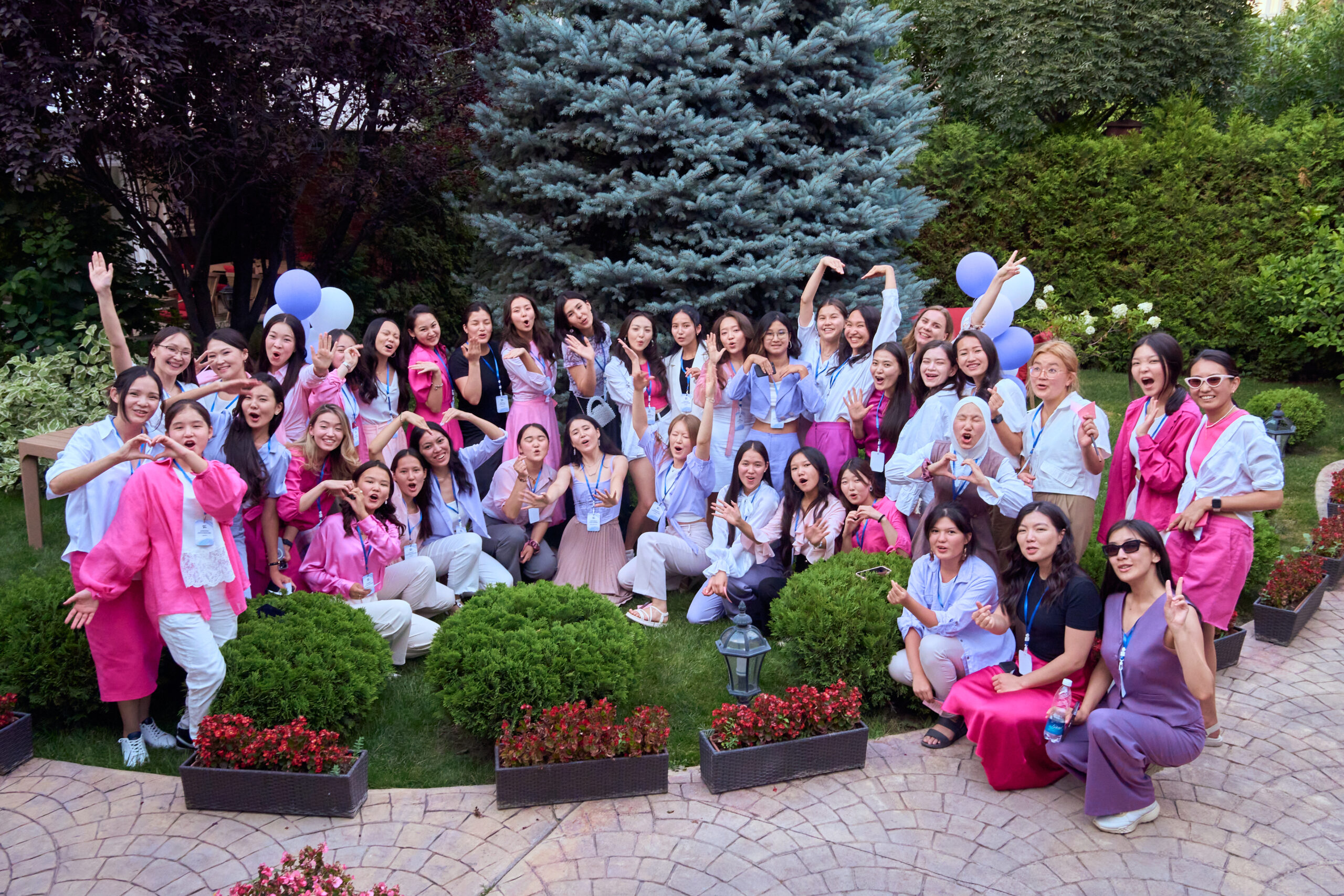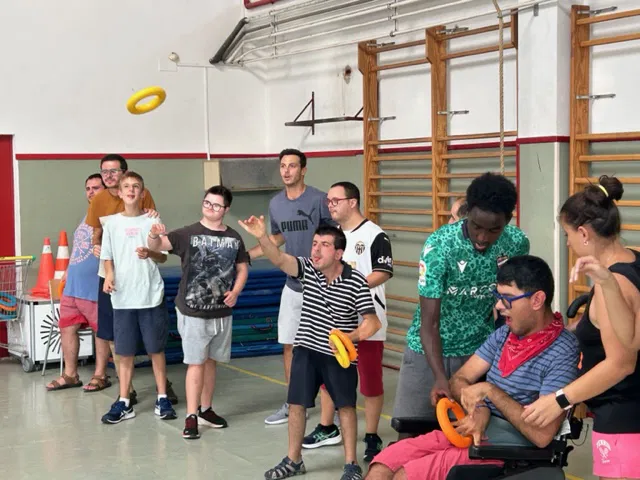By Assel Satubaldina,Fatima Kemelova
Copyright astanatimes

ASTANA – In a world where girls and women struggle with personal doubts and societal pressures that hold them back, what makes a difference is often the helping hand of a person who has already walked that path. That’s precisely what the Girls for Girls mentorship program has been doing for three and a half years – pairing young professionals with accomplished women in their respective fields.
The program’s co-founders Aikanysh Sydykova and Salkynai Emilbekova spoke to The Astana Times about the initiative, challenges, and why supporting each other can make a difference.
The Central Asia edition of the Girls for Girls mentorship initiative concluded in late August after 11 weeks of workshops and one-on-one sessions. The program brought together young women aged 17 to 22 from across five countries in the region, pairing them with 30 mentors to help build confidence, develop skills, and navigate the barriers that often limit their opportunities.
This year marked the program’s first expansion across Central Asia, following four earlier cohorts held in the Kyrgyz Republic. Over the past five cohorts, the initiative has connected 108 mentors from 17 countries with an equal number of mentees, building a cross-border network of women supporting women to help them navigate the region’s persistent gender gaps and patriarchal norms.
“Launching the Central Asia edition was my way of ensuring that girls here, no matter where they come from, could access mentorship, leadership training, and a community that believes in their potential,” said Salkynai Emilbekova, a Bishkek-based professional in business administration.
Where did it begin?
For Emilbekova, motivation stemmed from her personal experience of growing up in a rural area in Kyrgyzstan. She saw firsthand how limited access to opportunities, professional networks, and visible role models can narrow the choices available to young women.
“Often, it felt like certain paths were out of reach simply because no one around me had taken them before,” Emilbekova told The Astana Times. “Later, as I searched for guidance and role models, I understood how transformative mentorship can be.”
Aikanysh Sydykova emphasized the strong demand for the Central Asia edition.
“Even though the program started in Kyrgyzstan, we invited mentors from across Central Asia, and they kept telling us: ‘Girls in my country need this too.’ At the same time, we were getting direct messages from young women in Kazakhstan, Tajikistan, and Uzbekistan saying they wanted to join,” Sydykova said.
“Second, we realized the challenges young women face – lack of role models, pressure to follow traditional paths, self-doubt – are the same across the region. So launching the Central Asia edition wasn’t just expanding geographically; it was about building one community without borders,” she added.
Expanding regionally
Emilbekova describes their experience of expanding to Central Asia as “both exciting and daunting.”
“It required a lot of effort and courage to build new partnerships, secure donors, and engage people who believed in the vision,” said Emilbekova.
Sydykova echoed the sentiment, highlighting the challenge of creating a sense of community when it is not possible to gather all participants in one place.
“Instead, we designed a new model: we organized in-person gatherings in the capital of each participating country, so that mentees could still meet face-to-face, while at the same time building regional connections virtually. This hybrid approach required extra coordination and resources, but it paid off. Girls from Dushanbe, Tashkent, Almaty, and Bishkek not only met locally but also became part of one regional sisterhood through our joint online sessions,” Sydykova explained.
Challenges that mentorship helps overcome
Emilbekova pointed to “invisible barriers” that surround women in Central Asia from a very early age.
“Social expectations that limit their career choices, a lack of female role models in leadership, and limited access to networks that could open doors. Many feel pressure to put aside their own ambitions in order to follow traditional paths. Mentorship helps break these barriers. It connects young women with those who have already overcome similar challenges, showing them that it is possible to lead, to create, and to contribute to society in meaningful ways,” she said.
Sydykova said the hurdles are layered. While many young women in Central Asia are talented and ambitious, they are often held back by what she deems as “imposter syndrome and extreme modesty.” Lacking the confidence to speak about their achievements or advocate for themselves, they risk missing opportunities.
“Our mentors help them build confidence and practice self-presentation, negotiation, and leadership skills,” Sydykova said.
Externally, they face strong societal pressure and widespread misogyny that can discourage women from pursuing careers or self-development.
“A woman’s success is often questioned, diminished, or attributed to luck rather than merit. Many are told that leadership or professional ambition is ‘not for women.’ This discourages them from pursuing their goals,” Sydykova said.
Their ultimate goal was to create what Sydykova describes as a safe space, “where their ambitions are validated, not dismissed.”
“By connecting them with accomplished mentors who have faced—and overcome—the same stereotypes, we show them that they can succeed on their own terms and that their voices matter,” she added.
Make the program sustainable
Emilbekova acknowledged they seek to ensure the program continues. One of the reasons is a strong demand the team observed, which speaks to a greater need for support, guidance, and mentorship.
“We definitely plan to keep running the mentorship program across Central Asia, especially given the overwhelming demand – out of 860 applicants, we were only able to accept 30 girls this year. That alone shows how essential this program is. Looking forward, we want to multiply the impact by expanding both geographically and in terms of audience, reaching even more young women who are eager for mentorship and guidance,” she said.
Sydykova acknowledged the hope she feels about the program.
“Every time I see a mentee finish, I don’t just see one girl’s success. I see a glimpse of a different future for our whole region,” Sydykova said.
“These young women leave the program more confident, more ambitious, and better connected. They become role models for others. For me, it makes all the hard work worth it. It feels like we’re not just running a mentorship program, but planting seeds for the next generation of Central Asian leaders,” she said.
Mentor-mentee’s perspective
For Aida Zhanagaliyeva, the program’s mentee, joining the program wasn’t part of a plan. But as it happens, things you need come to you when least expected.
“To be honest, I discovered the program quite by accident. At that time, I was just finishing my bachelor’s degree. It was a real turning point when you are not sure what direction to take or how to begin your journey. I was in the process of searching for myself, taking the first steps in my career, and I realized that I needed to develop my skills and confidence,” she told The Astana Times.
Zhanagaliyeva, an Aktobe native, said she is very grateful to have become part of the program.
“During the program, my mentor supported me with any questions and doubts I had. I received helpful guidance on how to improve my resume and get ready for interviews. These meetings helped me stop being afraid to try new things and to feel less insecure,” Zhanagaliyeva said.
She also learned that mistakes are part of every person’s journey and something that helps a person grow.
“I also learned to stay open to learning, to fill myself with new experiences, and to share my own. For me, it feels like a natural exchange. By receiving support and knowledge, I not only grow stronger but also learn to be helpful to others. When we share knowledge and advice, we empower each other and create an environment where everyone can grow,” she said.
Aidana Akessina, a senior research fellow and the program’s mentor, acknowledged that the biggest insight was realizing growth happens not only for mentees but for mentors as well.
“I wasn’t her teacher. She taught me no less than I taught her,” Akessina said in a comment for this story.
“Young women in Kazakhstan and across Central Asia are so smart, bright, and ambitious, true polyglots. This generation almost feels ahead of us, and we have much to learn from their energy, openness, and tolerance toward the world, all while carrying deep love for their homeland,” she said.
She also pointed to a lack of visible role models, particularly in leadership positions. “There is no woman mayor [in Kazakhstan],” she added. “No woman leads the region. All ministerial positions are largely male-dominated. If women become ministers, it is mostly social topics.”
The Girls for Girls Central Asia edition was supported by the Young Women 4 Peace initiative, implemented by the OSCE and funded by the European Union.



